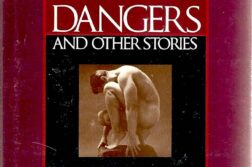Published in: November-December 2021 issue.
HUNGERHEART (1915) is a pioneering, semi-autobiographical lesbian novel written by British author Christabel Marshall under the masculine pseudonym Christopher St. John. The novel is a first-person narrative of Joanna “John” Montolivet that follows her on her quest for love.
George Robb, prof. of history at William Paterson Univ. (NJ), is the author of Ladies of the Ticker: Women and Wall Street from the Gilded Age to the Great Depression (2017).






